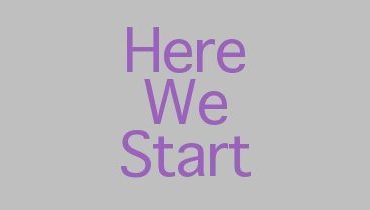Article in brief: the author explores the power of hope and the importance of it in our lives as a motivational factor that keeps us as human beings moving forward and trying again.

Martin Luther King Jr., the minister and social activist who led the civil rights movement in the U.S. said “We must accept finite disappointment but never lose infinite hope”. His famous speech that began with the words “I have a dream…” has been a beacon of hope to millions till today. One of the single most important emotions and mindsets that is probably responsible for the perseverance of mankind across centuries is hope.
An article entitled The Will and Ways of Hope published in December 2011 by Scott Barry Kaufman PhD, the Director of Imagination Institute at the University of Pennsylvania, discusses the importance of hope as the driver to getting us “there” or to where we want to be. He goes on to explain that talent, skill and ability help but that according to research, it is psychological vehicles that really get us there. Out of these psychological vehicles such as conscientiousness, passion, optimism and inspiration, hope is the most important one. (Retrieved from: https://www.psychologytoday.com/blog/beautiful-minds/201112/the-will-and-ways-hope)
In 1991, psychologist Charles R. Snyder and his colleagues came up with the ‘Hope Theory’, according to which they explain that “hope involves the will to get there and the different ways to get there”. What that means is that the person who has hope has the will and the determination to achieve goals, and has strategies at their disposal to reach those goals.
The research goes on to explain that hope is a dynamic cognitive (thinking) motivational system and our emotions follow our thoughts or cognitions. This means that hopeful people tend to have learning goals and are active and involved in learning, planning and strategizing towards meeting their goals by monitoring their performance and progress. Research supports the idea that learning goals are related to the success of people and their achievements in the academic, sports, arts, business and science fields.
Those lacking hope on the other hand feel that they can’t control their environment and they have mastery goals, meaning they choose easy tasks, and when they fail, they quit. These individuals don’t believe in their ability to get the future they want, they feel helpless and have no hope.
Snyder and his colleagues have even developed a way to measure hope called the Hope Scale. Along with other researchers, there are several studies that show the correlation between hope and better academic and athletic performance. Hope is one psychological vehicle that stands out when compared to other vehicles such as self-efficacy and optimism.
Unlike self-efficacy, which is the expectation that one will master a domain, or optimism which is having a positive outlook for the future outcomes, it is the individuals with hope who have a far larger chance at success as they have both the will and the strategies needed to achieve what they set out to in life. It is the vehicle that get us to where we want to be, and hope is the one vehicle that helps us develop the ability we thought we never had. This has been documented in research conducted at the University of Kansas as well as other institutions that have shown the relationship between hope and improved academic and athletic performance.
So why is hope so very important? Well, because life is difficult and comes with challenges and obstacles. Hope makes the present moment, no matter how bad it might be, less difficult to cope with and allows people to approach problems with a success-based mindset that increases the likelihood that they will achieve their goal. The belief that tomorrow will be better helps us bear today’s hardships. Abraham Miller, a researcher, said “A man begins to die when he ceases to expect anything from tomorrow”.
No matter how much people like to dismiss hope or make it out to be naïve disillusionment, science has in fact now proved that hope is not only the vehicle to success but also a pre-requisite for continued effort, and pursuit of goals. Imagine where we would be today if Thomas Edison gave up trying the first time he failed at making the light bulb or if the Wright brothers gave up the hope that man would fly one day. Hope is the light that keeps scientists researching for cures to diseases and keeps us waking up every morning. Hold on, stay hopeful and remember that you have the strength to get through it.



